DE TOTT
MEMOIRS OF THE BARON DE TOTT,
ON THE TURKS AND THE TARTARS
TOTT, François, Baron de (1733-1793)
London, 1786
An attractive copy of this fascinating political memoir in which the Hungarian born diplomat, François de Tott, explores the intricacies of eighteenth century Ottoman despotism from the viewpoint of Western diplomacy. A huge success at the time of publication, this eyewitness account fed the public’s insatiable fascination with the ‘Oriental other’ and challenged the insouciance of Western government. The memoirs follow the Turkish state’s metamorphosis from an agrarian society to a military power, a transformation overseen by Tott, who was highly involved in these military reforms.
A military engineer as well as a diplomat, Tott began writing his memoirs in 1767, the year he became the French consul to the Crimean Tatar Khan. Tott was the most influential of the many self-appointed Western ‘cultural mediators’ that flooded to Istanbul as part of the clan interventionniste in the late eighteenth century. Many Europeans acted as agents or double agents during the conflict, Tott included. His explicit mission was to relay information on the French Trading posts, whilst in secret his task was to encourage the Ottomans to go to war with Russia over Poland. It is clear that Tott felt a sympathy towards the Ottomans, so much so that Voltaire described him as the ‘protector of Moustapha and the Koran’. Nonetheless, Tott was popular among the French as his memoirs were both informative and very entertaining. He had initally travelled east to defend the Dardanelles but he remained to teach the Ottomans how to use artillery and his involvement was crucial in the country’s militarisation.
A nineteenth century biographer, J.C.F Hoefer credits him with ‘dispelling with exactitude, and often with impartiality, the European Myths of the Ottoman empire’. These memoirs were the first eye witness account to be published on the Ottomans, and the conflict over ideology and governance that Tott explores was not only fascinating to the French populus, but also contradictory to the staunch ‘studied ignorance’ of European government. At the time, William Pitt the Younger remained seemingly unbothered by the events of the Ottoman empire despite the despotism that had enveloped it, mainly because of the decline in the Levant trade and the pro-Russian party that resided there.
$ 2.500,00


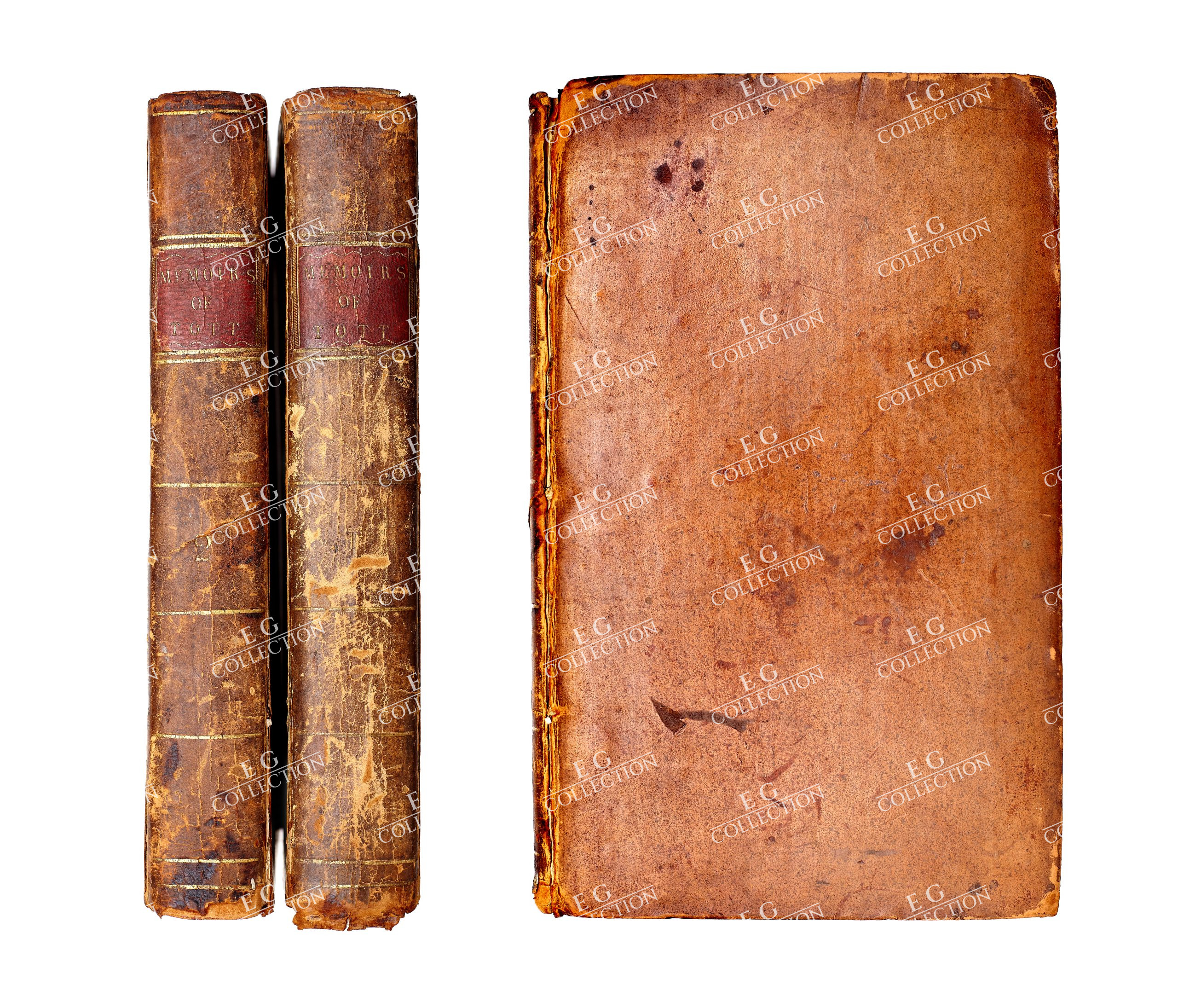
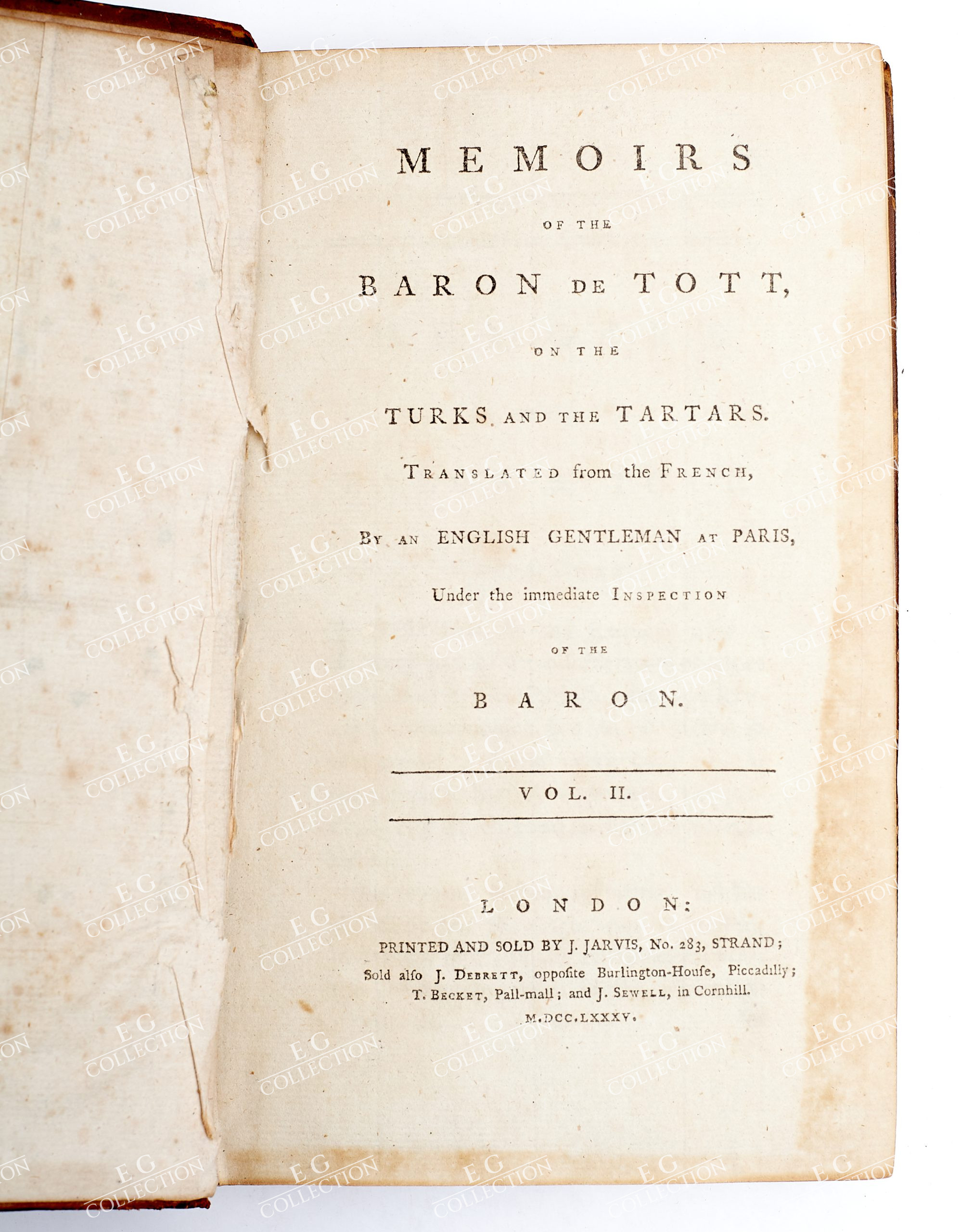

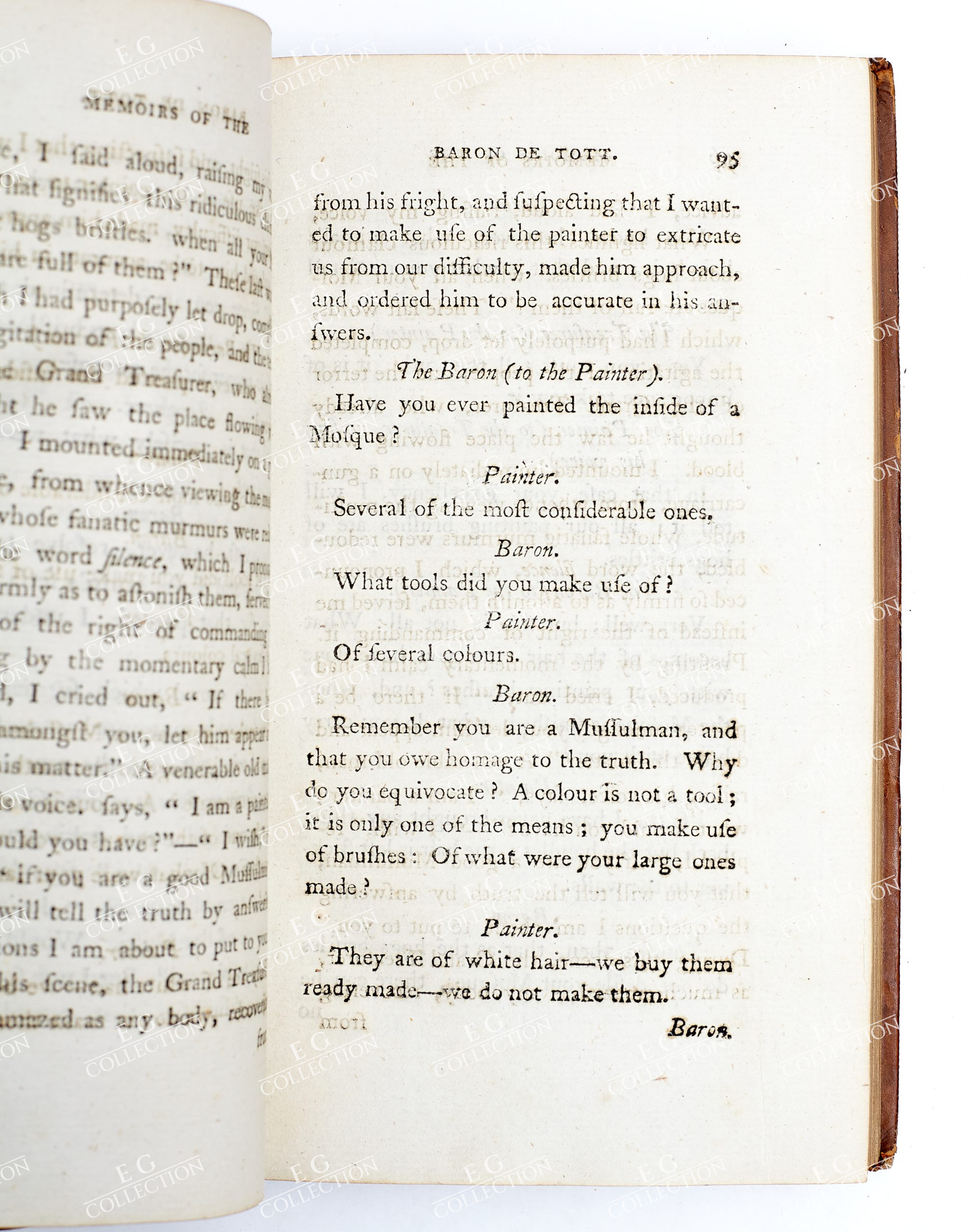

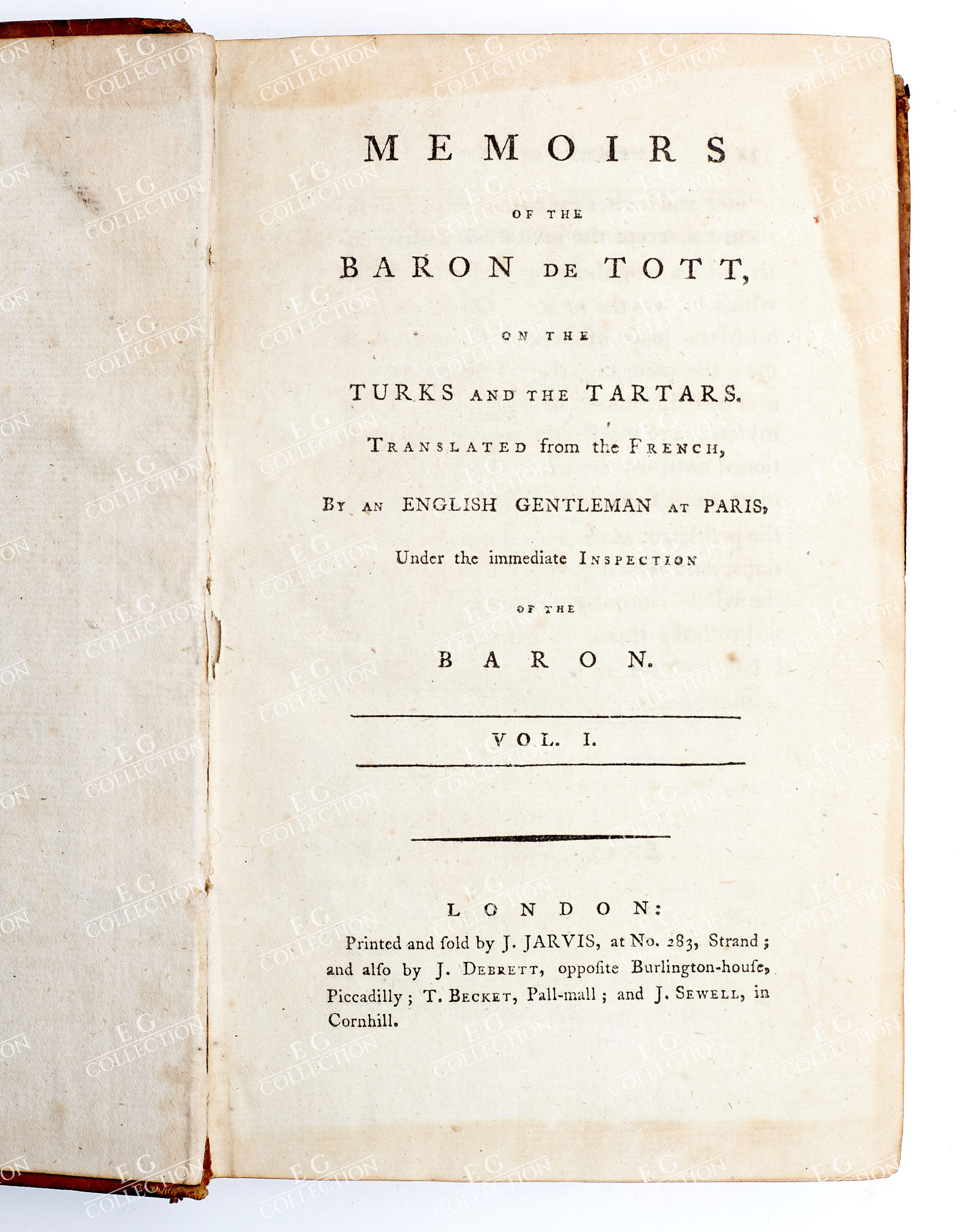
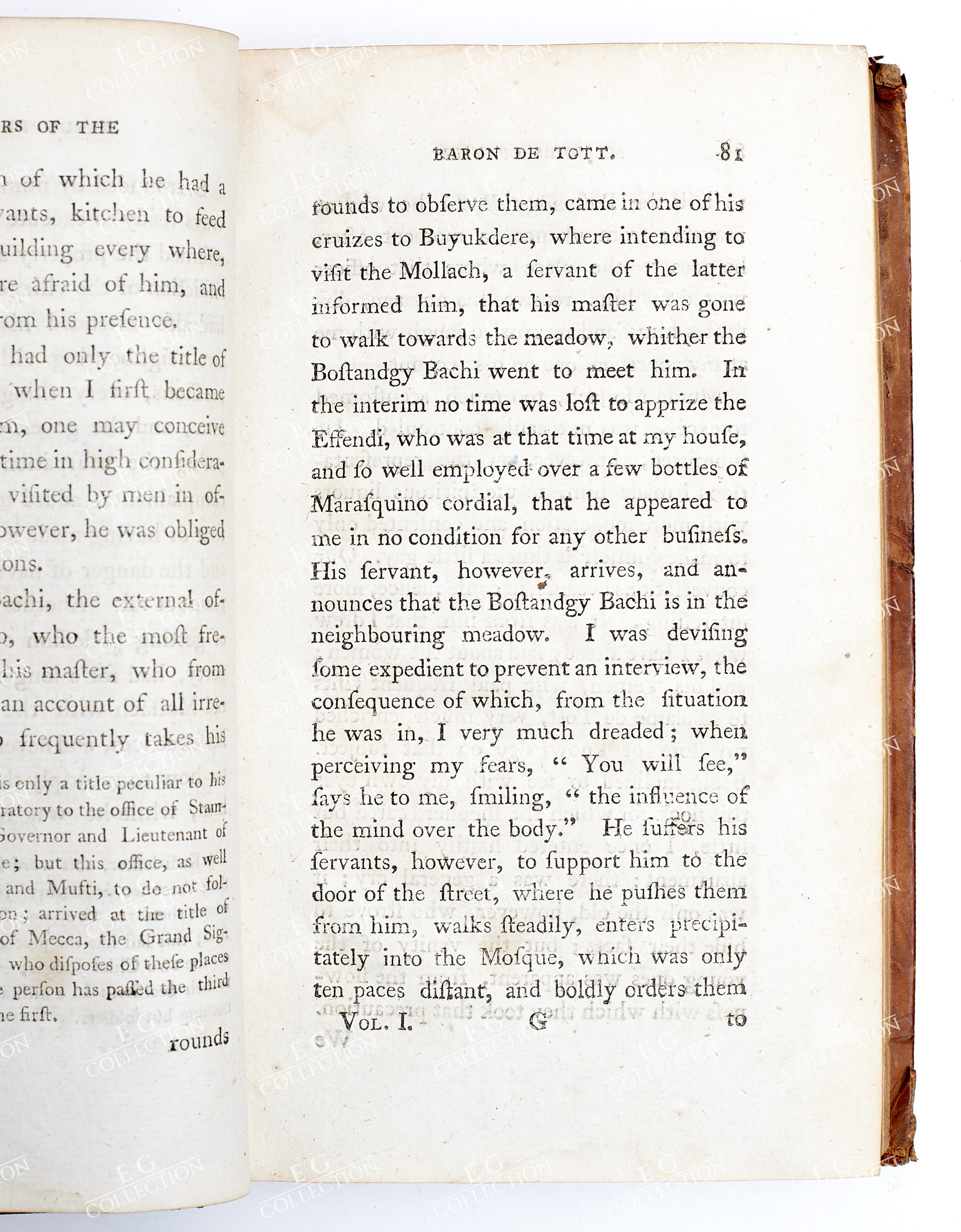

 No products in the cart.
No products in the cart.